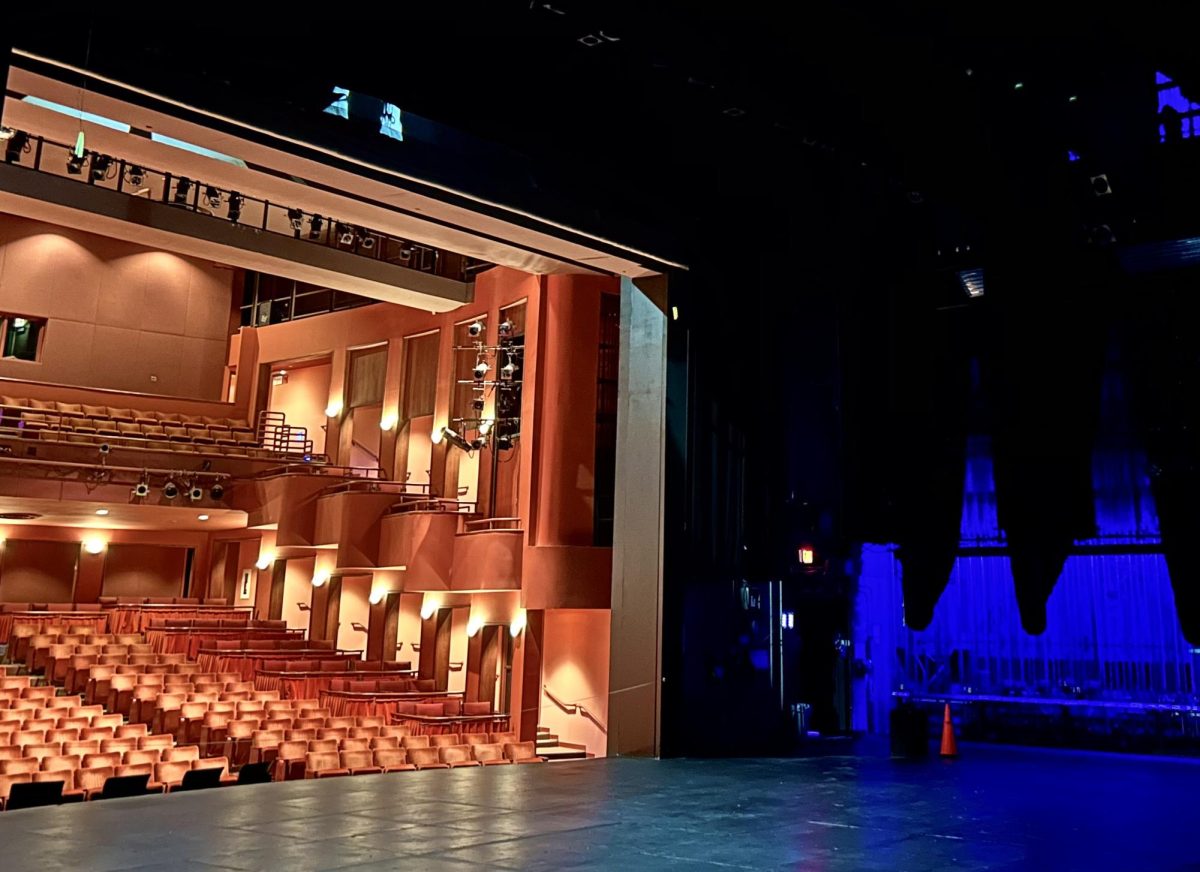
Shakespeare, literary history and the contemporary British dialect will feature in the first production of the fall semester for the School of Theater and Dance.
“The Book of Will” production will premiere in the Joan C. Edwards Playhouse from Oct. 4 until Oct. 7 at 7:30 p.m. The show will explore the story behind the collected work of William Shakespeare’s plays and their creation.
“We want the community to be introduced to the story behind all the plays that we know of and still talk about 400 years later,” said Nikki Riniti, a senior theater major who will play Alice in “The Book of Will.” “It is so interesting and important to know the history behind what literature is based upon.”
The School of Theatre and Dance has dedicated their entire fall semester to Shakespeare’s work in celebration of the 400th anniversary of his first folio.
“The first Folio is the first time that Shakespeare’s work was collected and printed according to Shakespeare’s own handwriting and the King’s men, who were his acting troupe,” said Leah Turley, the director for “The Book of Will.” “Folio essentially means four pages of script go on one sheet of paper front and back.”
Tickets are $22 at the door for the public and $15 for Marshall employees and seniors age 60 and over. Marshall students get a free ticket to the show with their student ID.
“I think the best part of Marshall University is the access to the arts that we have,” Riniti said. “It is a privilege for students to get to see a well-produced show for free.”
Students and staff began preparing for the show six weeks before official production and auditions that took place during the first week of classes.
“Getting prepared for the show is a full six-week process,” Turley said. “All of the things you see on set are a part of our educational process here in the School of Theatre and Dance, not only the performance but how we get to performance.”
She credited the students for doing “all the actual work,” as she said, for building the set and creating the costumes. She did, however, describe learning the dialect as the biggest challenge for the actors.
“The play is in contemporary British dialect, which can be very difficult—especially without microphones,” Turley said. “We do not use microphones unless it is a musical, which can be quite a difficult task for a young actor, but it is also a part of their education.”
Riniti said she is excited to see how the public will react to the performance and hopes it will encourage people to come see “The Winter’s Tale” production as well.
“I want everyone to come to the show with an open mind so they can learn about all the joys of theater, even if it’s not your thing,” Riniti said. “Don’t be hesitant just because it is Shakespeare. I promise it’s not boring.



















